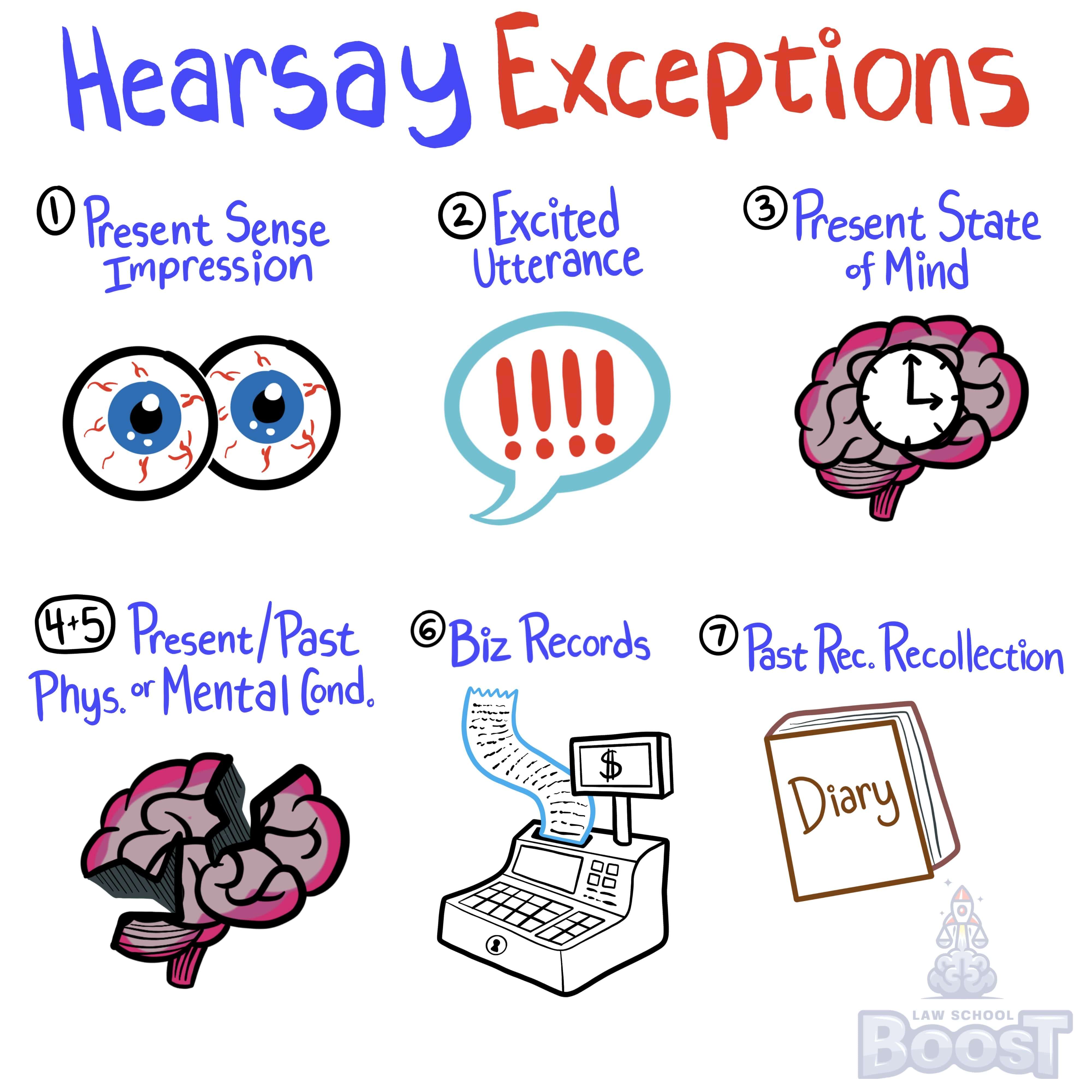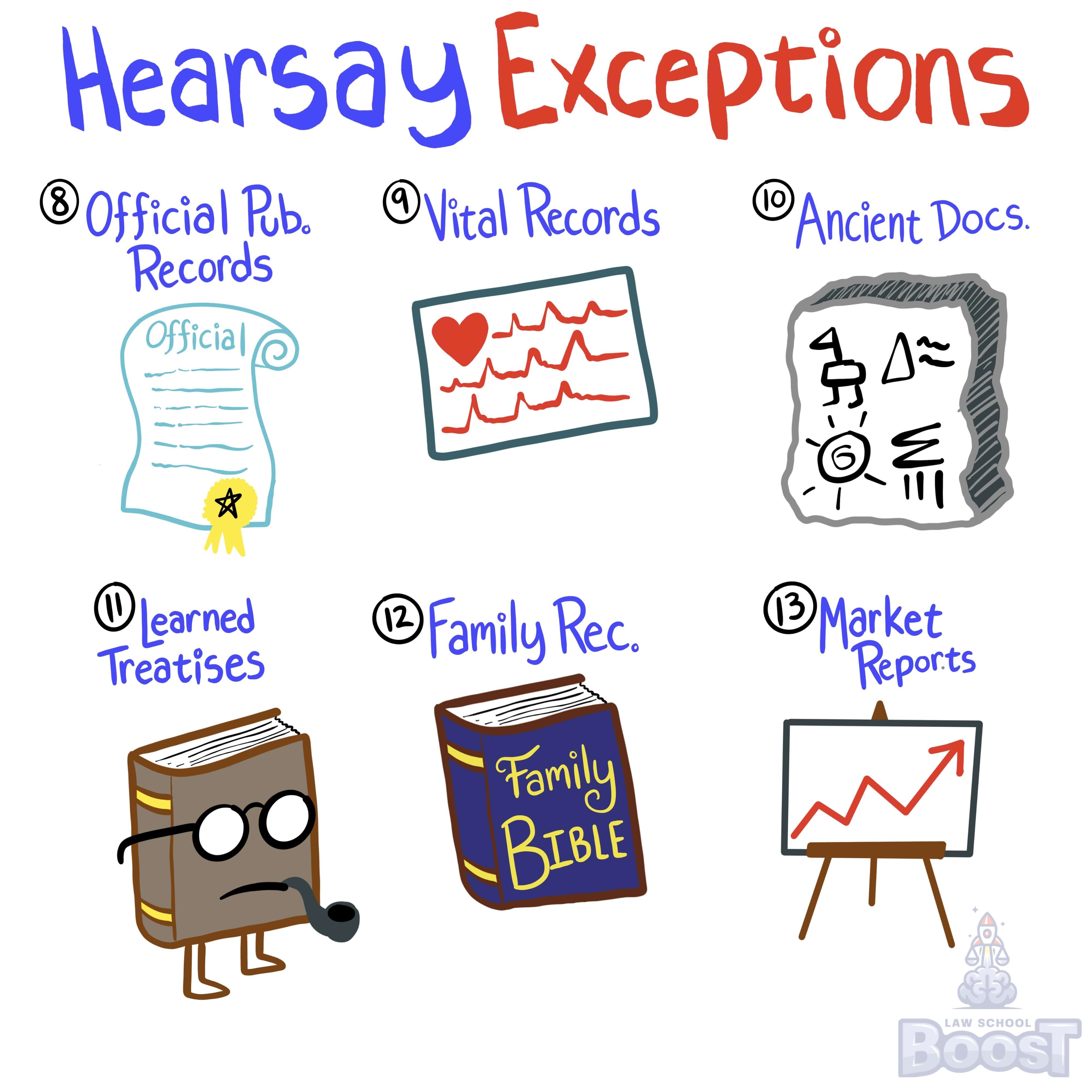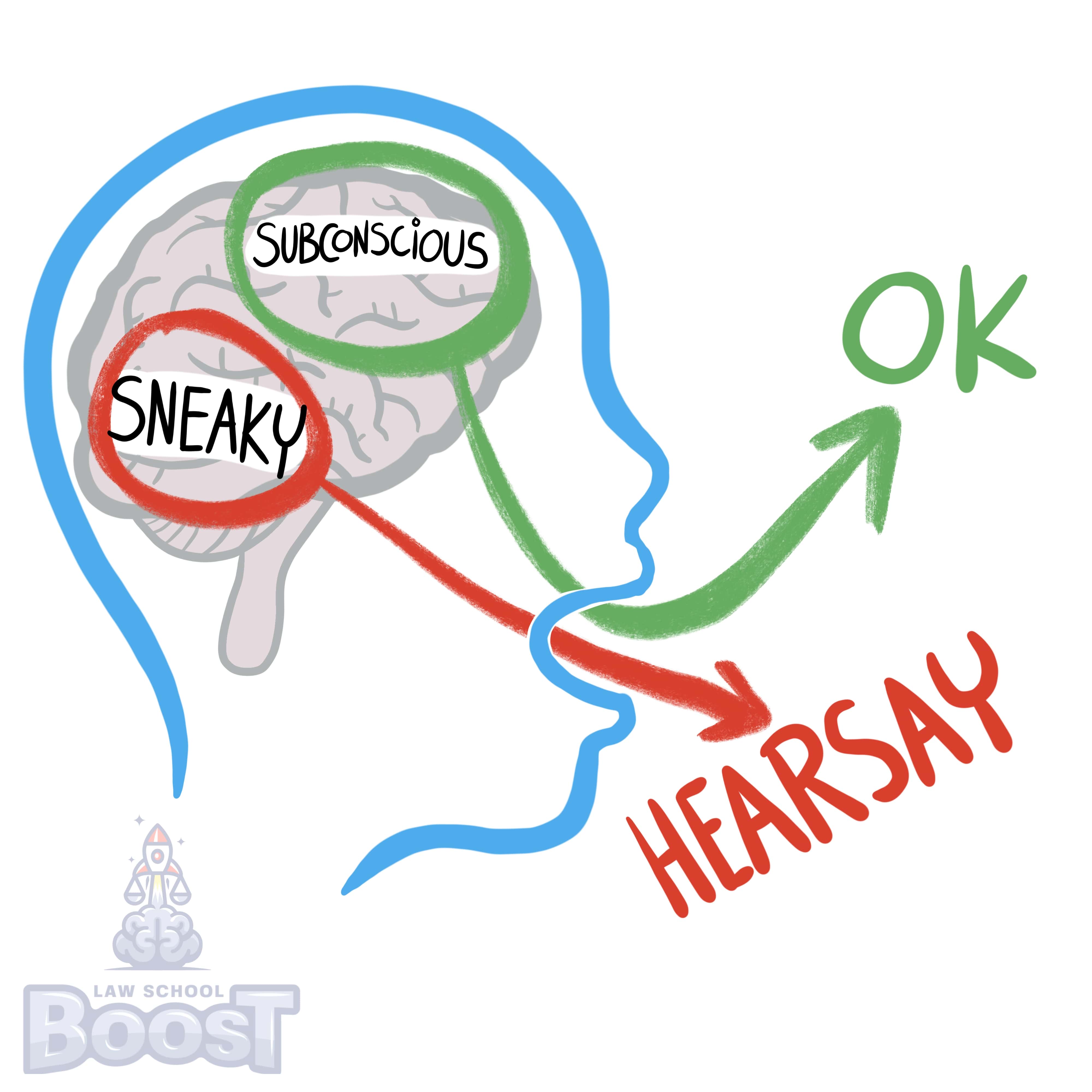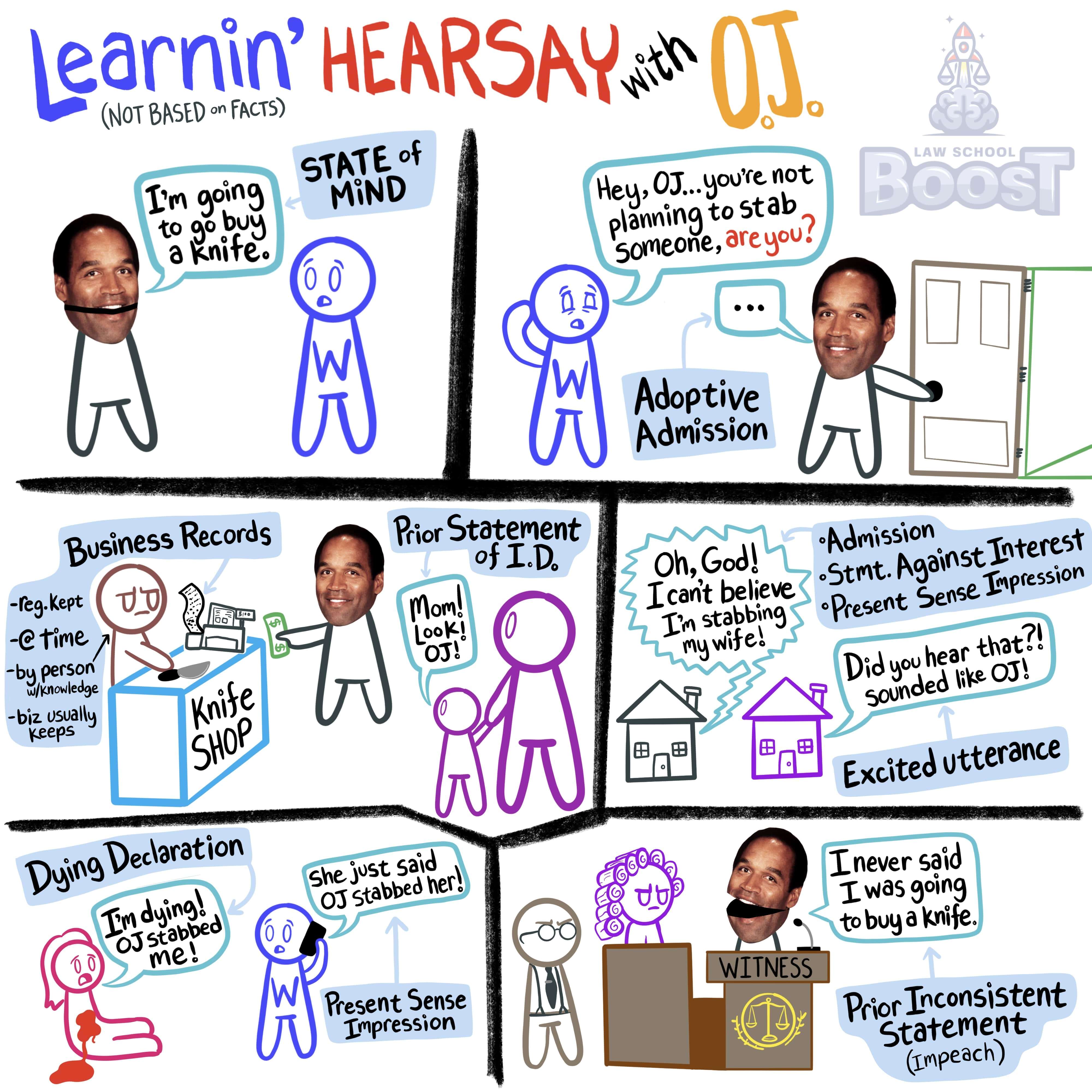🦅
Federal Evidence • Hearsay Exceptions - Unavailability Required
EVID#037
Legal Definition
In civil actions and homicide cases, the statement must be made by a declarant who believes death is imminent, and the statement must be concerning the cause of their death.
The witness must be unavailable.
The witness must be unavailable.
Plain English Explanation
The dying declaration exception allows the court to consider hearsay statements made by a person who believed they were going to die soon. The rationale is that a dying person would have no reason to lie about what caused their imminent death. So even though hearsay is usually inadmissible because it can't be cross-examined, this exception applies in civil cases and homicide prosecutions when the declarant has died and is obviously unavailable to testify. The exception only covers statements about the cause or circumstances of the declarant's impending death. Its purpose is to allow potentially reliable evidence that would otherwise be lost when the victim has died.
Hypothetical
Hypo 1: Bob is seriously injured in a hit-and-run accident and tells a paramedic that Sam was the driver who hit him. Bob believes he won't survive his injuries and dies shortly after. Result: Bob's statement can be used in court against Sam, even though Bob can't testify, because it was a dying declaration.
Hypo 2: During a severe earthquake, Bob is trapped under debris and, believing he won't make it, tells a rescuer that his neighbor Sam cut the support beams of his house. Bob survives, however. Result: Bob's statement cannot be used in court as a dying declaration because he survived the incident.
Hypo 3: On his deathbed, Bob believes his end is near and tells his son that Sam, his business partner, embezzled money from their company. Bob dies a day later. Result: This statement can't be used as a dying declaration in court because it's not about the cause of Bob's death.
Hypo 2: During a severe earthquake, Bob is trapped under debris and, believing he won't make it, tells a rescuer that his neighbor Sam cut the support beams of his house. Bob survives, however. Result: Bob's statement cannot be used in court as a dying declaration because he survived the incident.
Hypo 3: On his deathbed, Bob believes his end is near and tells his son that Sam, his business partner, embezzled money from their company. Bob dies a day later. Result: This statement can't be used as a dying declaration in court because it's not about the cause of Bob's death.
Visual Aids




Related Concepts
Does California recognize the statement of personal or family history hearsay exception?
How does the dying declaration hearsay exception differ in California?
How does the former testimony hearsay exception differ in California?
How does the statement against interest hearsay exception differ in California?
How does the statement offered against party procuring declarant's unavailability hearsay exception differ in California?
In California, what is the past physical condition or statement of mind (where at issue in the case) hearsay exception, and does it require the witness to be available?
In California, what is the statement describing infliction—or threat—of physical injury hearsay exception, and does it require the witness to be available? This is sometimes called the "OJ Exception."
What is the former testimony hearsay exception, and does it require the witness to be available?
What is the statement against interest hearsay exception, and does it require the witness to be available?
What is the statement offered against party procuring declarant's unavailability hearsay exception, and does it require the witness to be available?
What is the statement of personal or family history hearsay exception, and does it require the witness to be available?


